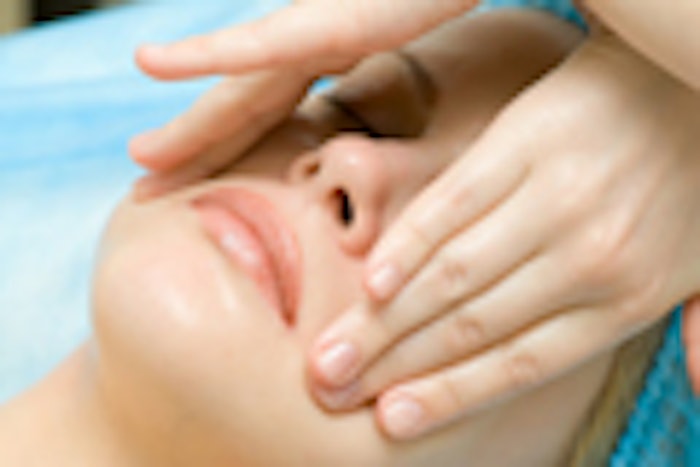
If some of your clients are noticing increased wrinkles around their mouths or a shortened lifespan of their injectable fillers, ask them to consider whether gum-chewing may be the culprit.
It freshens your breath and helps you quit smoking, but some cosmetic surgeons believe chewing gum does one more thing: It gives you wrinkles.
“Many of my patients who are gum chewers have a certain pattern of wrinkles around their mouths,” says Joel Schlessinger, MD, a board-certified dermatologist and cosmetic surgeon from Omaha, Nebraska. “And I think the gum is responsible to some degree for it.” (Schlessinger was also a cover profile for Skin Inc. magazine's sister publication, Merge magazine. Check it out.)
Although no studies have been done showing a link between chewing gum and wrinkles, the topic does come up with some regularity on beauty blogs. Experts attribute the gum-wrinkle connection to two things. First, there’s the repetitive motion of chewing that causes lines and folds around the mouth due to muscle overuse, says Hema Sundaram, MD, a Washington, D.C.-area cosmetic surgeon and laser expert. “I believe chewing gum promotes muscle overactivity and potentially breaks down support tissue within the skin, contributing to volume loss and perhaps loss of skin elasticity,” she says.
What's more, chewing gum can dislodge dermal fillers that people have injected into their faces to plump up their wrinkles. “It makes your Restylane and other fillers last a shorter period of time,” says Sundaram.
Schlessinger says he’s observed this with his patients, as well. “The act of chewing gum can dislodge the fillers earlier,” he says. “It actually pushes them out of the area. They dissipate a lot quicker in gum-chewers, in my opinion.”
But before you spit out that gum, consider this. An October 2009 study in Germany discovered that chewing gum had a significant and positive effect on concentration performance. (The test was performed on two classes of relatively wrinkle-free third-graders.) Additional research shows chewing gum decreases stress (in a study sponsored by Wrigley), increases alertness, and helps lessen the severity of nicotine withdrawal symptoms.
Jane Soxman, DDS, a board-certified pediatric dentist from Allison Park, Pennsylvania, says there are many dental benefits to chewing gum, as well (she recommends gum with the sugar substitute xylitol). “It stimulates salivary flow, assisting with the removal of food residues from the teeth,” she says. “It neutralizes the acid in your mouth. And if you have an early, early cavity, it helps to remineralize the area and reduce the advancement of tooth decay.”
The gum-wrinkle connection is a new one on her, though. “I know cigarette smoking creates wrinkles above the upper lip with the pursing of the lips, but I’ve never heard of gum causing wrinkles,” she says.
Repetition is the culprit, says Schlessinger. “We’re not talking about the occasional gum chewer,” he says. “We’re talking about people who have a habit of chewing gum and are rarely, if ever, seen without a piece of gum in their mouths.”
Anna Viele, a 36-year-old blogger (and former smoker) from Los Angeles, says that’s her. “I’ve chewed gum my whole life,” she says. “I don’t blow bubbles, and I’m not necessarily smacking it all the time, but I always have some in there. I like it because it makes my mouth feel cleaner, and I obviously have some kind of oral fixation and the gum helps with that.”
This latest wrinkle isn't enough to make her quit, she says. “I guess it makes sense but it’s kind of like saying eating or smiling is going to give you wrinkles,” she says. “It’s not going to keep me from chewing gum. Unless they say you’re going to get wrinkles and cancer from chewing gum. Then I’d be like ‘OK, maybe I should quit.’ ”
By Diane Mapes, from msnbc.com, March 9, 2010










